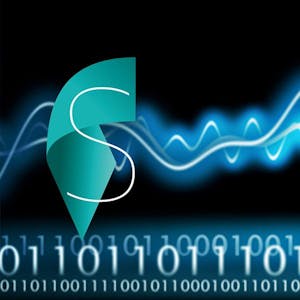This Specialization in Digital Signal Processing offers a comprehensive course in audio processing and data transmission. It covers fundamental concepts such as discrete-time signals, Fourier transforms, digital filters, and converting analog to digital signals. This course also delves into real-time DSP algorithms on microcontrollers, providing theoretical knowledge and practical examples in Python through Jupyter Notebooks.
The course is designed to equip learners with the skills to analyze and manipulate signals, understand digital data communication, and bridge the gap between analog and digital worlds. With applied examples and exercises, this specialization provides a solid foundation to tackle real-world challenges in the field of digital signal processing.
Certificate Available ✔
Get Started / More Info
This specialization consists of four modules. Module 1 covers basic concepts and algorithms, including discrete-time signals and the Fourier transform. Module 2 focuses on digital filtering, design, and adaptive signal processing. Module 3 explores the differences between analog and digital signals, including sampling, interpolation, and multirate signal processing. Module 4 delves into image processing, digital communication systems, and real-time DSP algorithm implementation on microcontrollers.
The first module, Digital Signal Processing 1: Basic Concepts and Algorithms, provides a solid foundation in discrete-time signals and their analysis in the frequency domain via the Fourier transform. Learners will gain a deep understanding of the nature of discrete-time signals and their representation as vectors in a vector space.
The second module, Digital Signal Processing 2: Filtering, delves into digital filters, their functionality, design, and adaptive signal processing. Learners will explore the practical application of digital filters and gain expertise in manipulating signals using various filter techniques.
Module 3, Digital Signal Processing 3: Analog vs Digital, elucidates the differences between continuous and discrete time, sampling, interpolation, and quantization. Learners will understand the process of converting analog signals into digital format, the working of A/D and D/A converters, and multirate signal processing.
The final module, Digital Signal Processing 4: Applications, covers the basics of image processing, the working of digital communication systems such as ADSL, and the implementation of real-time DSP algorithms on a microcontroller. Learners will gain practical skills in programming microcontrollers for real-time DSP applications.
Real-Time Embedded Systems specialization offers comprehensive training in real-time theory, analysis, and practical implementation for embedded systems, preparing...
Electrodynamics: Electric and Magnetic Fields offers a comprehensive exploration of magnetostatics, electromotive force, and their practical applications in various...
Introduction to FPGA Design for Embedded Systems provides a comprehensive understanding of FPGA technology, architecture, and design. Ideal for aspiring engineers...
Sistemas Digitales: De las puertas lógicas al procesador is an essential course for students and enthusiasts entering the world of digital systems. It covers system...